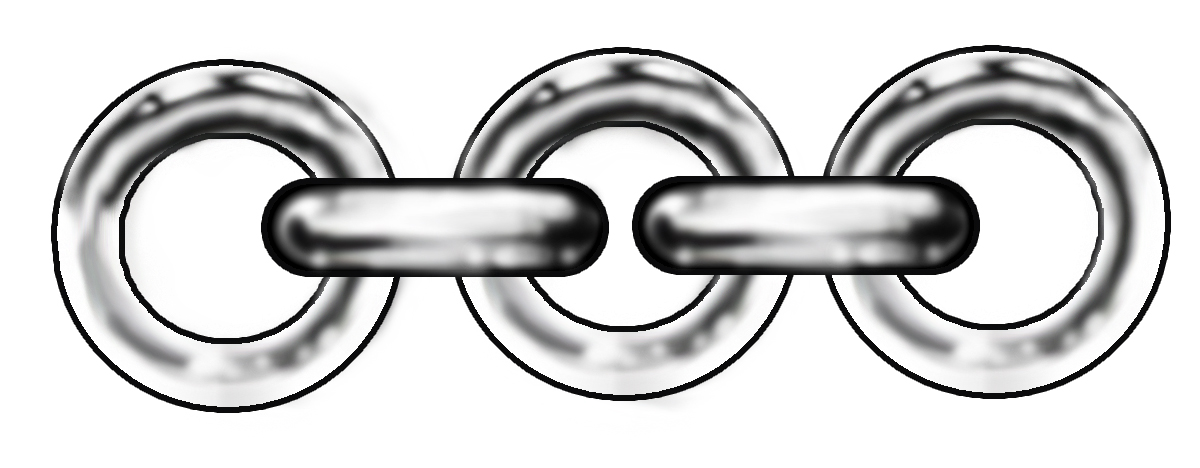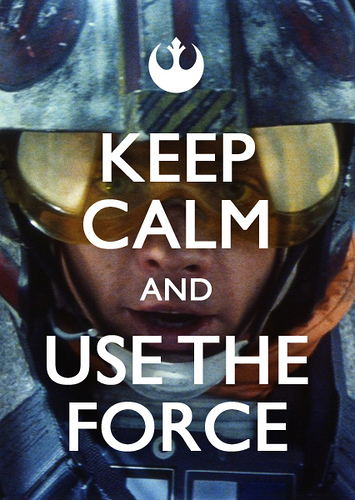Many doctoral candidates who first reach out to us for dissertation assistance or dissertation editing seek out our expertise at a key stage in the drafting and revision process–the feedback stage. After more than 11 years in dissertation consulting, we know that reviewer comments can often feel personal. This is your study, and you’ve devoted a tremendous amount of time to researching and drafting. So criticism, constructive or not, can be hard to take.
It can also feel like there’s a vast gulf between your understanding of your work and your chair, methodologist, or university reviewer’s comments on the exact same draft. Add to that the often baffling, jargon-packed language reviewers use to provide their feedback, and it can be difficult to know where to begin! We’ve all been there, and thrown those world (Cup) class tantrums when our work comes back covered in comments and revision requests.
Today we want to break down the potential types of feedback many of our dissertation consulting clients receive when they first reach out for editing services or dissertation help. This is a process we complete for many of our clients early in the dissertation consulting process, because we recognize the ultimate goal of any feedback: to make your dissertation the best presentation of your research and vision possible. While feedback can be tough, just consider the alternative, what we call Florence Foster Jenkins Syndrome (FFJS). Never heard of her? From just one of many articles describing her fame (or infamy):
Florence Foster Jenkins was, and will forever be, the worst singer to appear at Carnegie Hall. And more: She is arguably the worst singer to ever devote herself so wholeheartedly to, and fail so fully at, the craft of singing. Wilson summed it up acidly: “She can sing anything but notes.” The records she made—the sole surviving aural evidence of that “craft”—are a cacophony of squawks and screeches; great, careering arcs grasping vertiginously for high Ds, Es, and Fs, that come clucking wildly, frantically down again. She sang in public so consistently—and so consistently badly—that she became one of New York City’s most prominent musical cult figures; since her death in 1944, she’s become one of world’s. The hilarity and, ultimately, the tragedy of Jenkins’ story is that she remained blissfully, utterly convinced of her ability until the bitterest of ends.
Jenkins is, honestly, probably the best-case scenario of FFJS. She never knew how poorly her work was received, and she even had a movie made of her life starring Meryl Streep, to boot. But we can all think of examples of other examples of people who have achieved “so awful it’s funny” fame (Rebecca Black and her song “Friday,” anyone?)–and it’s safe to say that none of us would welcome that status for ourselves!
So there are some real (and really important) reasons that feedback is a necessary part of the dissertation editing process. Whether you’re planning to tackle reviewer comments on your own, or exploring options for dissertation help, you want to make sure your work gets noticed for the right reasons. That said, even seasoned dissertation consultants can find ourselves wondering where to start when the comment bubbles proliferate on our clients’ drafts–so a momentary freakout on your part is completely natural! Once the moment passes, though, take a deep breath, and see if you can break down your feedback into a few clear categories. Once you know what you’re dealing with, it’s much easier to come up with a plan to revise your dissertation so that it’s ready for approval at your next review!
Here are five categories that we find really helpful in working with our clients to develop individualized plans for comprehensive dissertation help (or thesis help!):
- APA editing and formatting
- Alignment
- Scholarly support
- Research design
- The great unknown
APA editing and formatting
Comments that fall into the editing-level category are usually fairly self-evident, and can include:
- Please follow APA section 4.25, p. 108 (as a comment on your use of acronyms) or other comments that specifically reference the APA style handbook
- Please follow the rubric or Please refer to the template (often shows up as feedback your title page or Table of Contents)
- Passive voice–adjust or This is anthropomorphism–please correct throughout (sometimes including a definition of either term)
- Remove “and” and replace with ampersand or Incorrect use of et al. (for your in-text citations and full reference list)
The solution to these comments is usually clear–review the appropriate guidelines in the APA style guide or your school’s formatting requirements, and update accordingly. Make sure to set aside some time, especially if your references are improperly formatted or missing information, or if you often default to passive voice in your writing! (We’ve actually got a great video on how to tackle these APA editing issues that can help get you started.)
We’ve categorized this type of feedback specifically under APA editing and formatting feedback, primarily because the vast majority of our clients follow the APA 8.0 style guide for their dissertation or thesis writing. However, whether you’re using APA, MLA, Harvard, Turabian, or some other style guide, you’re likely to receive feedback focused on dissertation editing (although specific to your university’s style requirements). And regardless of your style guide, if you could use a dissertation editor’s expertise, Precision’s editing services team can absolutely assist you with making sure your work has that final polish for approval-ready work.
Alignment
It’s important to keep in mind–particularly when you reach out to dissertation editing services–that the above comments are their own separate category and quite distinct from other comments you might receive, particularly earlier in the drafting process. These comments often refer to organization, structure, and flow, meaning more in-depth revision or dissertation assistance may be required to ensure alignment throughout your writing.
In fact, it’s not uncommon for the word “alignment” to specifically appear in these comments. In reviewing your purpose statement or research questions, your chair or mentor might comment “This is out of alignment with your problem statement.” In this instance, you might go back and re-examine the exact language used in your problem and purpose statement.
Many of our clients study different aspects of leadership, for example, in their respective fields. Perhaps you reference transformational leadership, specifically, in your problem statement, planning to build on Bass’s (1990) discussion of key leadership traits, but only mention leadership in your problem statement or RQs. This will most likely get “pinged” by your reviewers for a lack of alignment (in fact, it’s one of the most frequent comments we come across in dissertation consulting).
Once you’ve identified key theories, concepts, and variables that inform your work, it’s important to use those terms consistently throughout your dissertation or thesis writing. This indicates to your reader that these core concepts truly inform each aspect of your work and that your entire study has been designed to clearly and specifically address the gap in current research identified in your problem statement.
While the majority of alignment-related comments refer specifically to the alignment of your study’s foundational elements, you may also come across chairs or other reviewers who borrow the term to refer to a lack of organization or “flow” within specific paragraphs or passages. This might be referred to in comments like:
- Check sentence alignment
- Make sure your statements in this paragraph align with each other
- Not enough critical analysis of evidence
These comments point to a key issue in academic–or, really, any–writing: the clear presentation of information to indicate the relationship between what you’ve found in existing research (or in the findings from your own qualitative or statistical analysis, in later chapters) and the central questions you hope to answer in your study. On a paragraph level, then, this often means ensuring that any critical assertions you make are presented in a logical order.
Of course, when reviewing your own writing, it can be challenging to see where the knowledge and research that informs your work hasn’t yet made it onto the page, and this is in fact why many of our clients reach out to us early in the process for dissertation assistance, particularly around issues of alignment. For many of our most successful clients, we provide dissertation help early in the process, and work with them on refining their topic and ensuring proper alignment throughout those critical initial sections of their study–and if you could use a fresh perspective on alignment in your own work, we’d be happy to assist!
It’s also important, of course, that your justification for your study and, later, your discussion of the importance of your findings is well-supported by existing research–and this leads us to our next feedback category.
Scholarly support
As part of your dissertation or master’s thesis, you have to complete extensive research and reading. The term “deep dive” might seem more than a little appropriate here, particularly if you prefer to print out and highlight journal articles–an ocean of papers can very quickly take over a room, especially as you review 200 or more sources before drafting your literature review!
Even for the most organized researchers, it’s easy to review and annotate sources and then, as time passes, to “assimilate” the findings from existing theories and studies into our own ideas and assertions about our proposed research. This can lead to your asserting positions (that are, in fact, supported by current scholarship) without citing the research that supports your claim. Again, this is a very common omission in scholarly writing! And that means, of course, that it shows up in quite a lot of the reviewer feedback we come across as dissertation consultants.
Most of the time, when you need to demonstrate scholarly support for your assertions, you can expect comments that are fairly direct:
- Add more citations to support the themes
- Citation needed
- Cannot be your own opinion–please cite
Etcetera! However, this feedback may respond directly to what you’ve written, as well, so some comments you might expect (and that we see often from clients seeking dissertation help) include:
- For example? (if you’ve written “Recent research indicates…” but without referencing specific studies)
- What survey? or What theories? (if you reference established instruments or theories to support your approach, but not by name)
Perhaps you’re using a citation tracker or have your own system to ensure none of your sources slip through the cracks (although be careful with citation software–as it can very often create more work for you when the time comes for dissertation editing!). That still leaves you vulnerable to another very common criticism of scholarly support, which is the current relevance of your sources.
Most universities, in particular the major online universities like University of Phoenix, Walden, Grand Canyon University, Capella, and Northcentral, have very strict requirements for the percentage of recent versus seminal scholarship. If you attend one of these schools, 85% of the research cited in your dissertation must be no more than five years old–three years, for some programs!. If you’ve found a ton of great research from the 90s on your topic, but not much from current scholarship, in other words, you can expect a lot of comments like:
- This source is over 20 years old!
- Where are the recent sources to support relevance?
- Revise and update with current articles
Again, while you are allowed to include some older research, it’s important that these sources simply serve to indicate your knowledge of core theories and how scholarship on your topic has evolved over time. Imagine if, instead of Mark Hamill’s reprisal of his role as Luke Skywalker in The Last Jedi, serving as a link between the new films to the original Star Wars trilogy, there were just a bunch of older extras from the original trilogy milling around all the casino scenes.
Of course, if you’re getting feedback that your work isn’t a scholarly source at all, that’s a whole different issue–one we discuss in much greater detail in a separate post. And if you find yourself struggling to identify sources to justify your research gap–or more recent sources–don’t hesitate to reach out. This is often precisely when many of our clients first contact us for dissertation help and we’d be happy to extend our expertise on current research to help you clarify and justify your proposed study. We provide this support for thousands of clients employing both qualitative research methods and quantitative research and statistical analysis–in other words, whatever the proposed methodology for your study, we can absolutely provide you with the dissertation assistance you need to support your research!
Something to note: There can actually be a bit of overlap between this category and the next if you don’t provide scholarly support for your methodological approach and research design (pro tip: older sources can often be helpful for your overview of methodologies before you get into the specifics of your proposed design!). However, for the most part, feedback on your methodology and design tends to be much more specific to your own plan for research, as we’ll discuss more below.
Research design
In discussing research design and the methodology chapter, it can be helpful to think of other tasks where detailed instructions are helpful: instructions for IKEA furniture, maybe, or a recipe for an elaborate French meal. We’ve all experienced that crushing pain when our favorite cooking show contestant makes a critical error and has to say goodbye.
Take that heartache and magnify it by about a billion and that’s how you’re likely to feel if you get through proposal and IRB approval only to find that a central element of your research design can’t be carried out. For that reason alone, try to be patient with even the harshest feedback on your methodology and research design. It’s important that your study can both be performed as you envision and that the data you collect actually relates back to your study–so that you can actually answer your research questions or prove or disprove your hypotheses when the time comes for qualitative or statistical analysis!
In our work with providing dissertation help for qualitative research and analysis, and in our statistical consulting, we often come across comments asking for those specific details that (much like the sources you reviewed but forgot to include in your literature review) you’ve probably thought about but haven’t outlined in your research design:
- Please describe the variables
- Include discussion of the selected instrument
- What about site permission?
Hopefully, in most cases, these comments will point you towards the gaps in your writing so that you can provide full details of each step in your recruitment (if needed), data collection, and analysis plans. Keep in mind that not only does this ensure speedier IRB approval, but it also helps you move forward quickly with data collection once you’ve gotten the green light from your committee and review board. (For anyone struggling to clarify their data collection process, especially recruitment, we’ve actually developed a handy list of key considerations ).
Some clients also reach out for qualitative research or statistical consulting after receiving comments that go a bit deeper than wrapping up the details:
- This seems more befitting to do a qualitative study
- Not sure how you’ll be able to research this
- How will you determine who meets the criteria?
If this applies to you, hopefully you’re still early in the process of developing your study! Regardless, though, comments of this type indicates some broader questions that need to be answered with regards to the central aims and methodological approach of your study (perhaps you’re still addressing feedback with regard to alignment, too, as discussed earlier in the post). We can absolutely help you with your dissertation methodology or design (qualitative or quantitative) so that it’s clear how your study can be conducted to provide robust results to your central research questions.
That last group of questions can definitely overwhelm our clients–but at least you know where to focus in terms of addressing the feedback, even if there’s a lot of work involved! There are some even more elusive–and therefore frustrating–comments that you’re likely to come across at least once or twice during the drafting and dissertation editing process. How to tackle them?
The great unknown
Have you ever gotten a comment (maybe more than one) on your work that simply reads “?????,” “What is this?,” or “No clue”? These are probably the least fun–or helpful, for that matter–comments a reviewer can give. It’s easy for chairs and other academics (even some independent dissertation coaches!) who review many drafts of many dissertations to forget that your context and theirs are often not the same. This results in the kind of “word salad” feedback mentioned here, and potentially a lot of frustration on your end as you try to determine what to change in your draft.
How to tackle these more enigmatic comments, then? The first is to take them rather literally–the comments are unclear because the reviewer is unclear on your meaning. So take a step back, use a critical eye and see if you can categorize the needed change into one of the four groups discussed above. In the best-case scenario, the issue is simply something missed during dissertation editing–like a missing word or a quotation mark.
Consider, for example:
“It’s incredible how we just sit there and just think and rethink and rewrite and rewrite and rewrite” (West, as cited in Caramanica, 2018).
vs.
It’s incredible how we just sit there and just think and rethink and rewrite and rewrite and rewrite,” (West, as cited in Caramanica, 2018).
In this case, identifying and correcting a simple typo (a missing quotation mark) saves your reader from asking a number of questions, from “Where does the quotation begin?” to “Is this actually a typo, and this sentence is paraphrased material?” Once you’ve identified the issue, then, you can correct and mark those question marks as resolved!
If you’re unable to identify the issue, you are absolutely entitled to reach out to your reviewer and ask them to clarify. In most cases, your reviewer will probably be pleased that you’re closely reviewing the provided feedback and happily give you more directed comments (this also helps him or her to be a better reviewer of your work in the future!). Again, nobody wants you to fall victim to FFJS–definitely not your chair!
It may be that you’re working on a tight deadline, or often experience long delays in communication with your chair or current reviewer, and in that case you can (and should!) absolutely reach out for dissertation help. Our dissertation consultants can review your current draft and help you complete the process of “decoding” your most recent feedback and work with you to come up with a solid plan to address any and all comments by your next deadline. This initial consultation is absolutely free–so if you need help understanding reviewer feedback, or are considering any other dissertation assistance, don’t hesitate to give us a call or send us an email!
References
- American Psychological Association. (2018). APA style. Retrieved from http://www.apastyle.org/
- Bass, B. (1990). From transactional to transformational leadership: Learning to share the vision. Organizational Dynamics, 18(3), 19-31. doi: 10.1016/0090-2616(90)90061-S
- Black, R. (2011, September 16). Friday. Retrieved from https://www.youtube.com/watch?v=kfVsfOSbJY0
- Caramanica, J. (2018, June 25). Into the wild with Kanye West. The New York Times. Retrieved from https://www.nytimes.com/2018/06/25/arts/music/kanye-west-ye-interview.html
- Salsburg, N. (2014, July 1). The worst singer in the world. Pacific Standard. Retrieved from https://psmag.com/social-justice/worst-singer-world-florence-foster-jenkins-84329#.oolo2sipr










